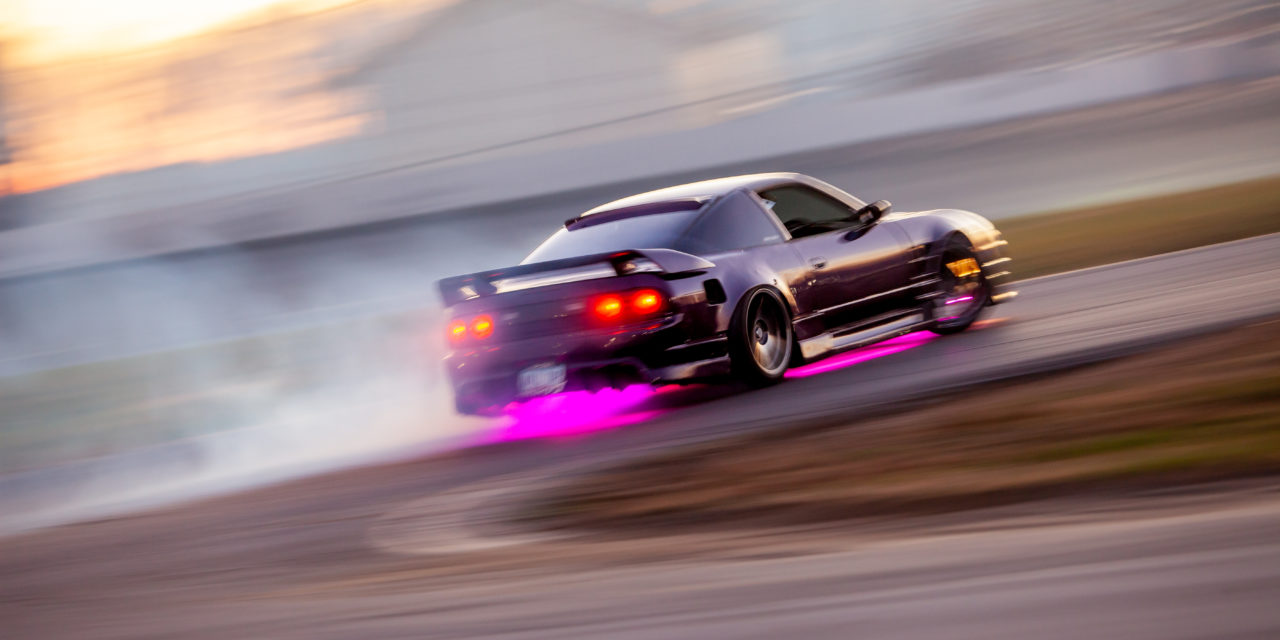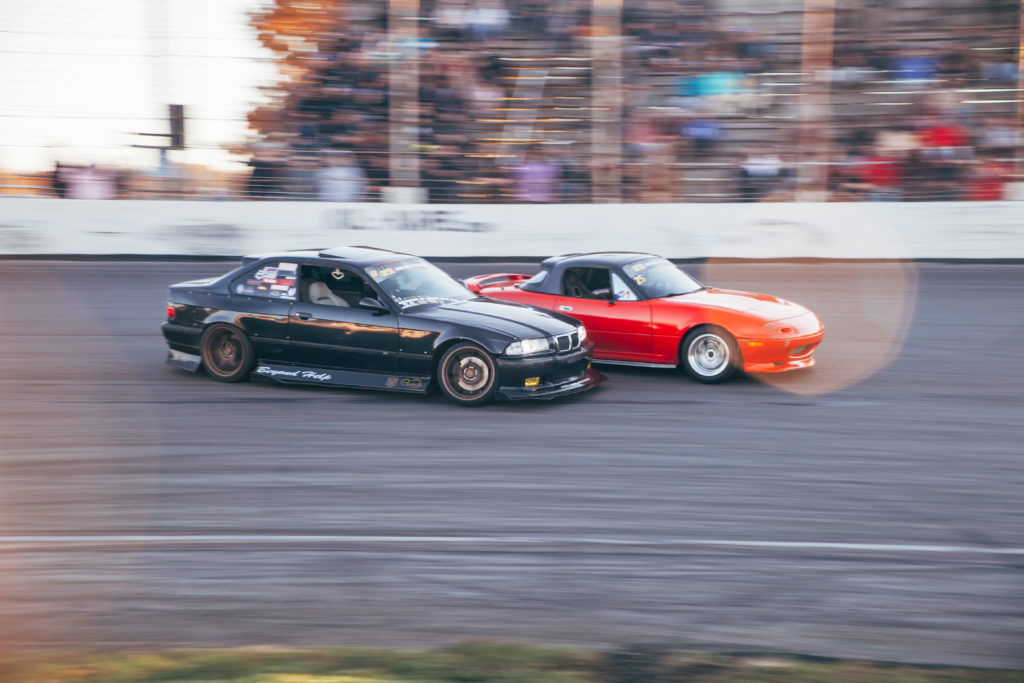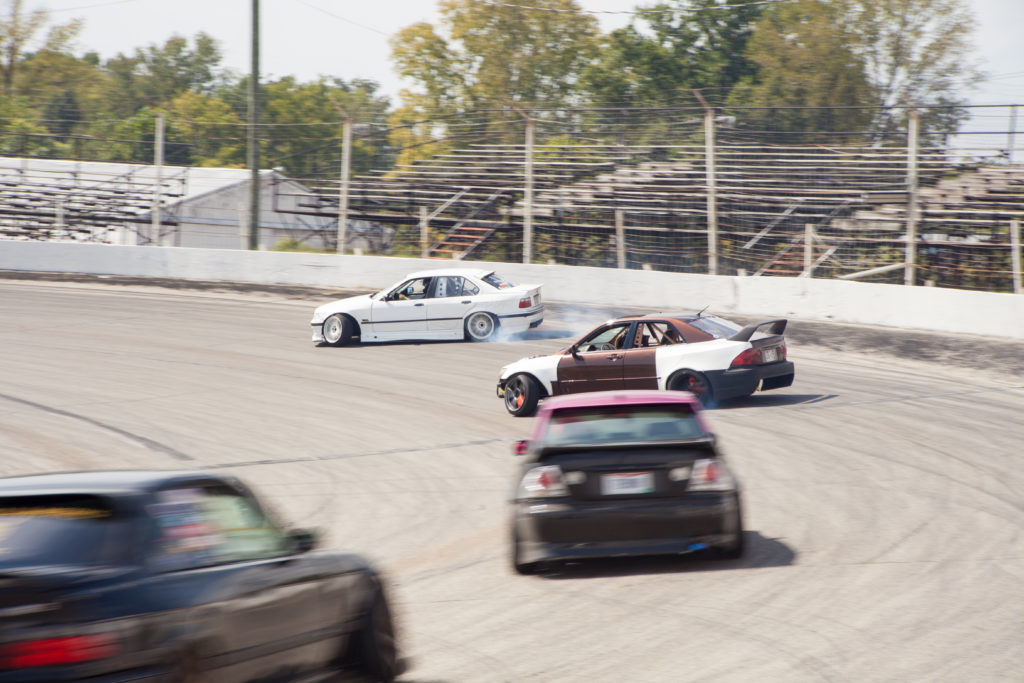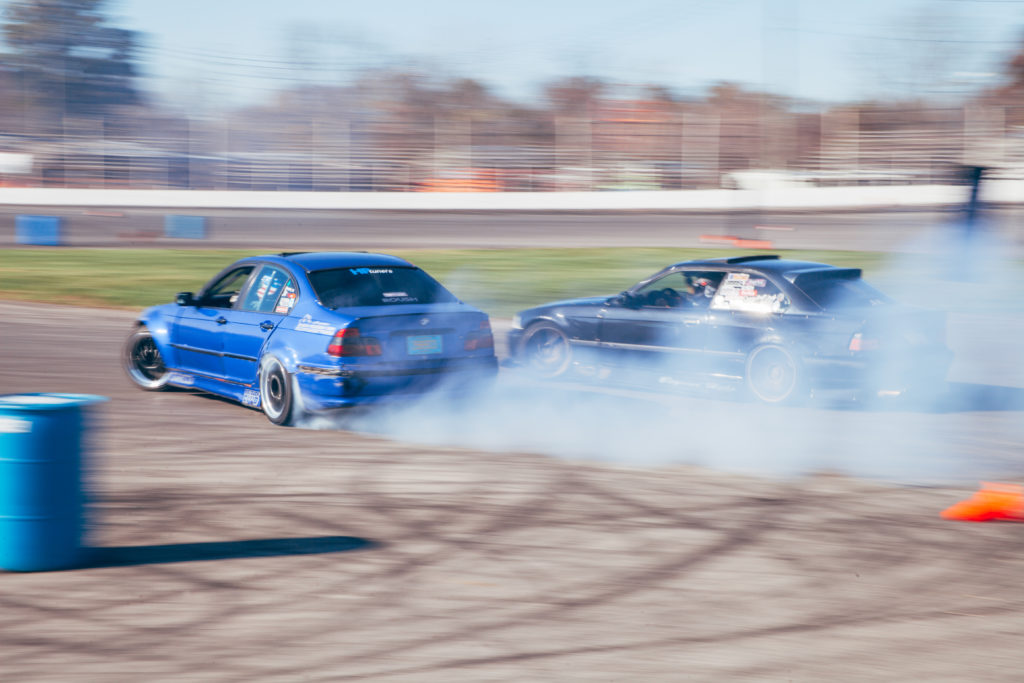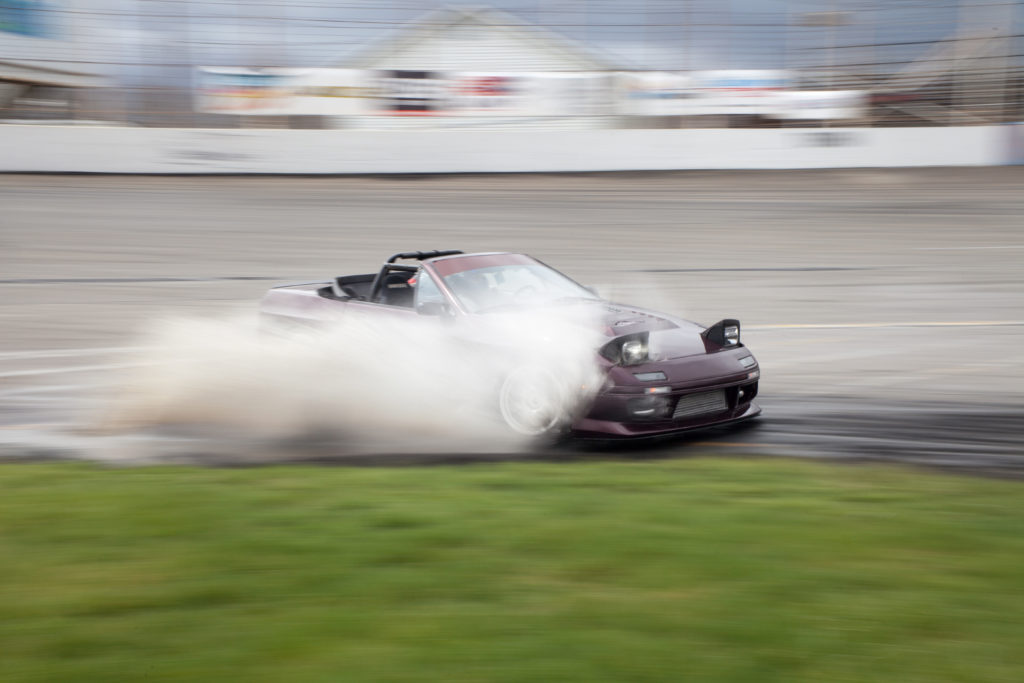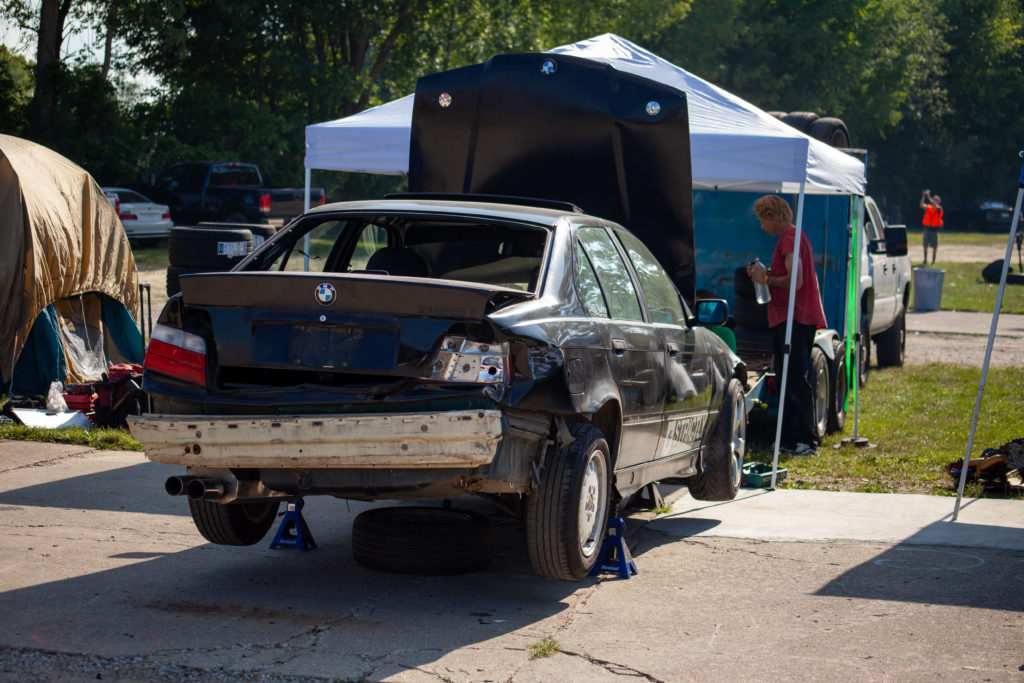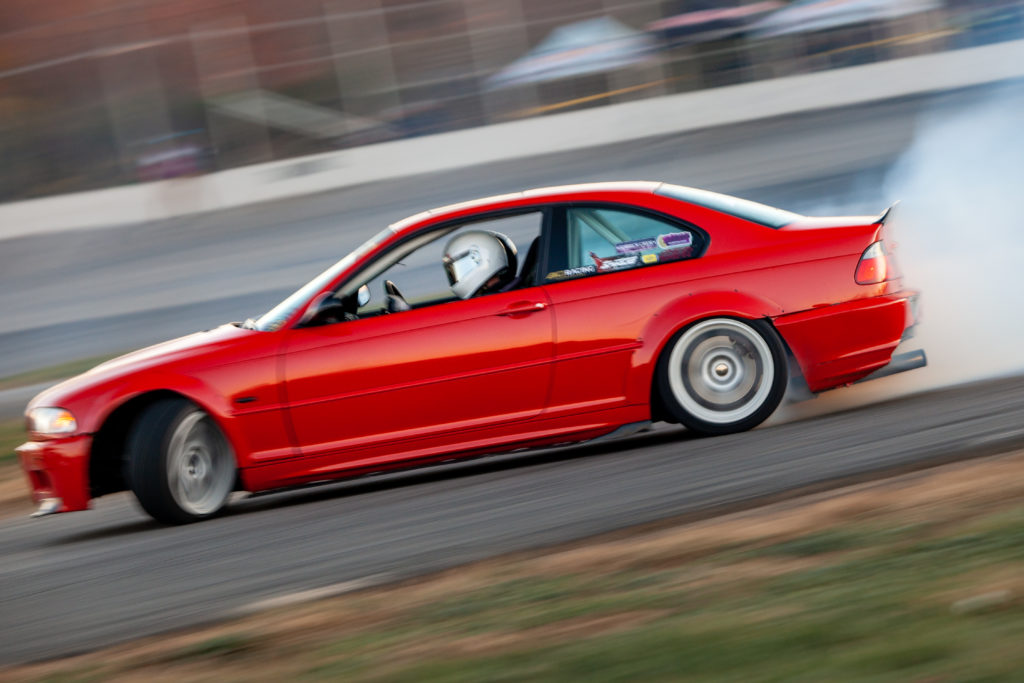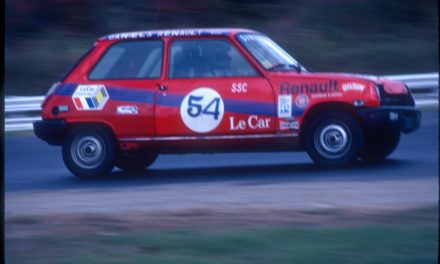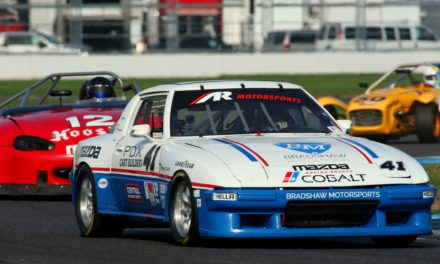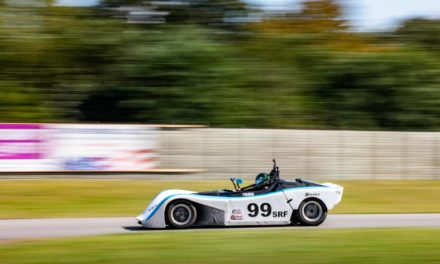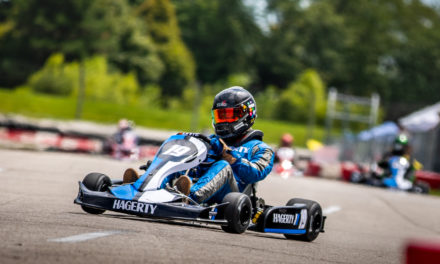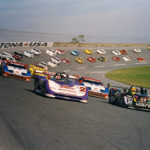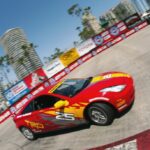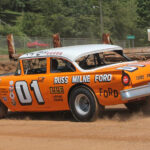For the uninitiated, the lingo thrown around at drift events may lead to more questions than answers. From Formula D to grassroots affairs, a tire-smoking weekend yields a lexicon all to itself. You might hear people mentioning trains with no locomotives in sight or using terms from an entirely different language. So that you may avoid confusion next time you visit one of these competitions, here are 21 terms and definitions that you might hear trackside.
Angle | noun
The slip angle of a car (relative position of the car versus direction of travel) or the steering angle (how much the wheels are turned during a drift).
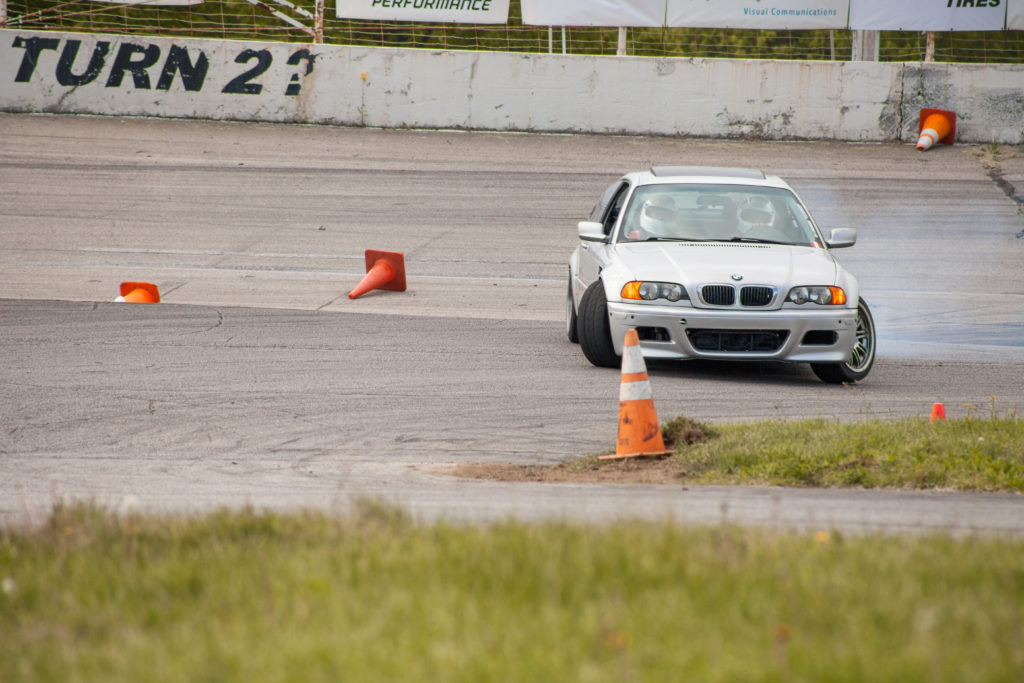
Clipping point | noun
A point marked on the apex of a turn, usually by a cone. In a drifting competition, drivers are rewarded for how close they can get the nose of their car to the cone without hitting it.
Clipping zone | noun
A rectangular area of the outermost edge of a corner, marked by two cones to denote the start and end of the zone. In competitive drifting, drivers are expected to place the vehicle up to the outside edge of the corner without hitting the two cones that mark the zone.
Clutch kick | verb or noun
A technique used to initiate a drift and adjust the car’s angle mid drift. By rapidly pushing the clutch in, and then out while applying throttle, the sudden shock to the driveline can initiate a drift or control wheel speed in order to help position the car during a drift.
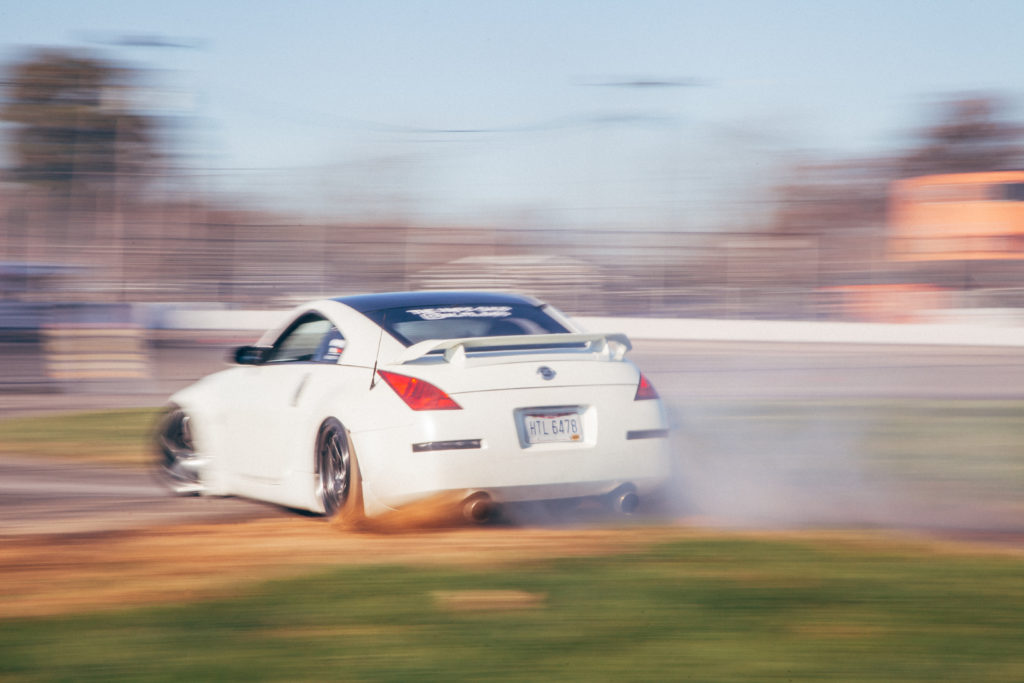
Dirt drop | verb or noun
Putting the rear two wheels off the pavement and into the dirt while drifting. While it makes for a dramatic photo, dirt dropping is liable to break axles and suspension components as there are usually deep ruts in the ground where the pavement ends.
Drift stitch | verb or noun
The use of zip ties to temporarily reattach pieces of broken body kits.
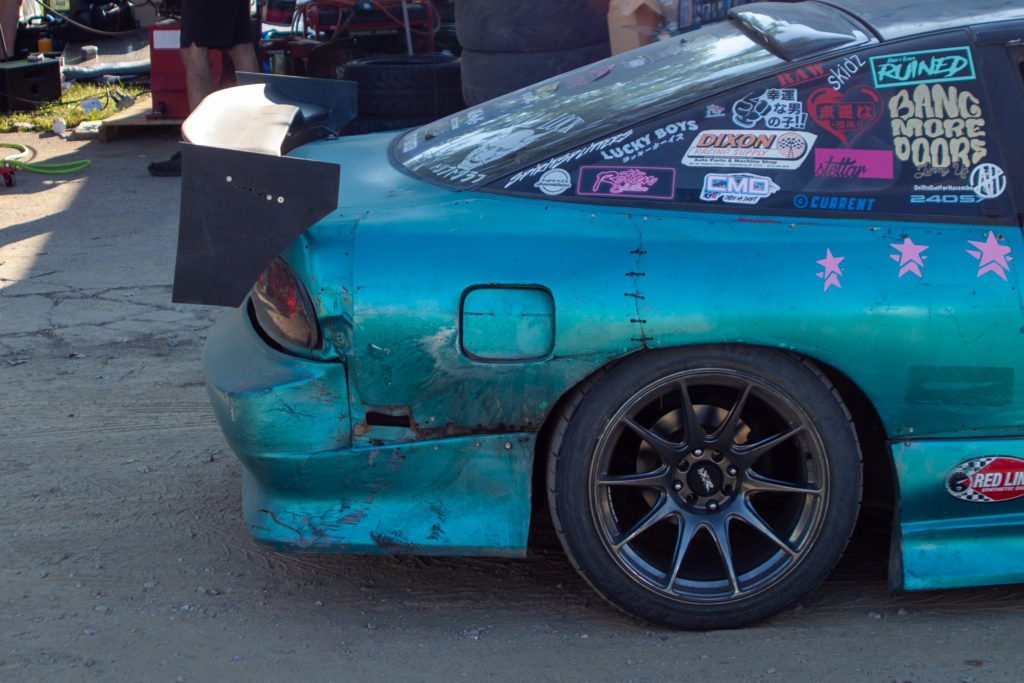
Initiate | verb
Starting a drift.
JDM | noun or adjective
noun. Japanese Domestic Market
adj. Relating to cars, sub models, trims, parts, etc. that were only available Japan.
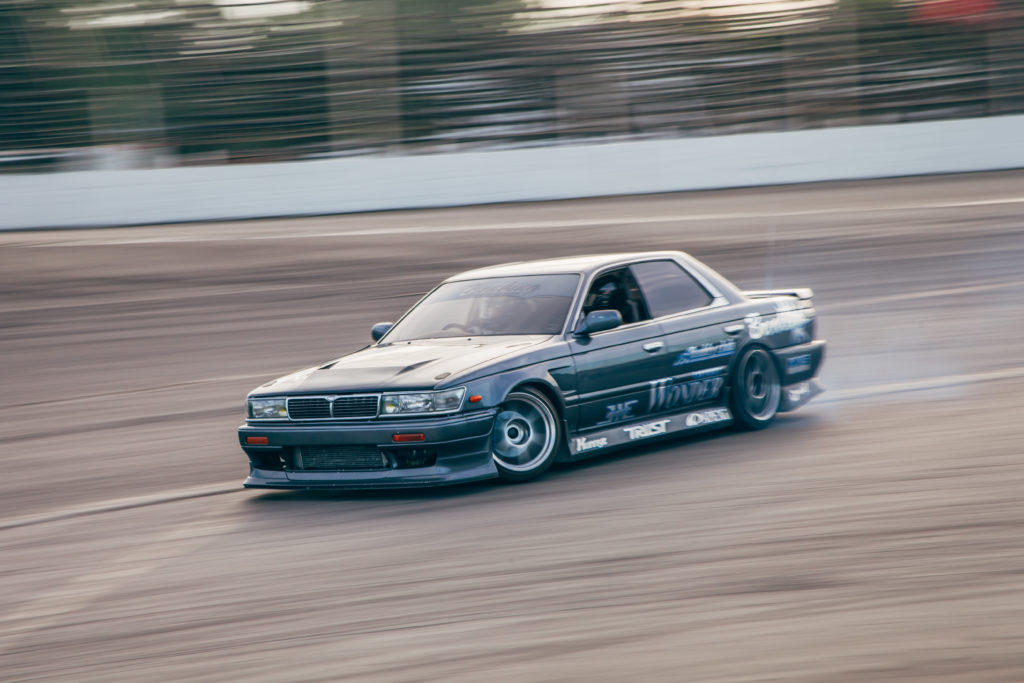
Kit | noun
A body kit, usually made from fiberglass. A kit is an essential aspect of drift-car aesthetics.
Link | verb
Continuously drifting the entire track.
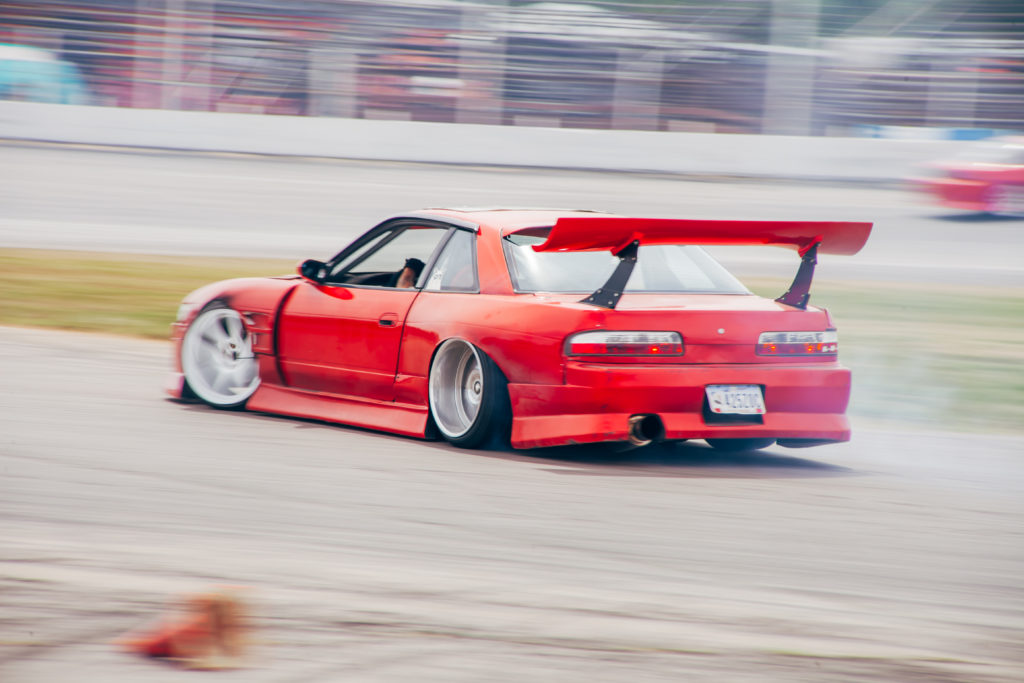
S-chassis | Noun
A Nissan 240SX from 1989–1993 (chassis code S13) or from 1994–1998 (chassis code S14).
S-chassis can also refer to the 1984–1988 200SXes (S12) or Japanese market Nissan Silvias (S15) but is less common.
Scrubs | noun
Low quality rear tires, typically obtained via a junkyard, to be sacrificed in the name of tire smoke.
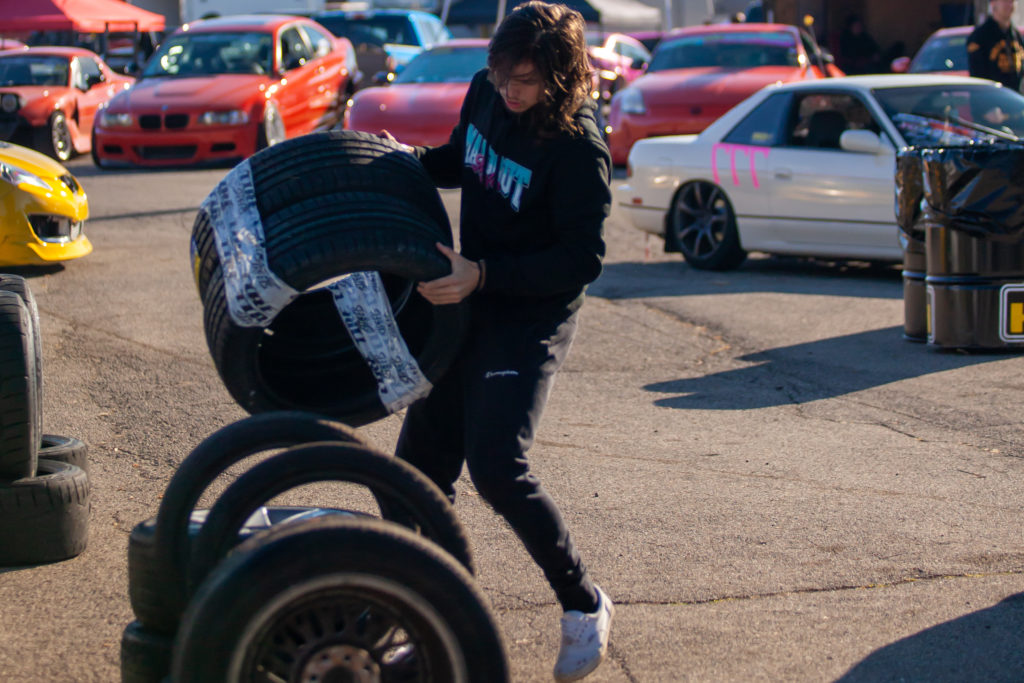
Steers | noun
Front tires.
Straighten | verb
Losing the drift and understeering. The car straightens out when driver overspeeds in the corner and loses traction in the front tires.
Tandem | noun
The act of drifting in close proximity to another car.
Train | noun
A tandem drift consisting of more than two cars.
Wall ride | verb or noun
Grazing the wall with the rear end of a drift car. This feat is seen as a mastery of car control as there is a fine line between riding the wall and crashing your car.
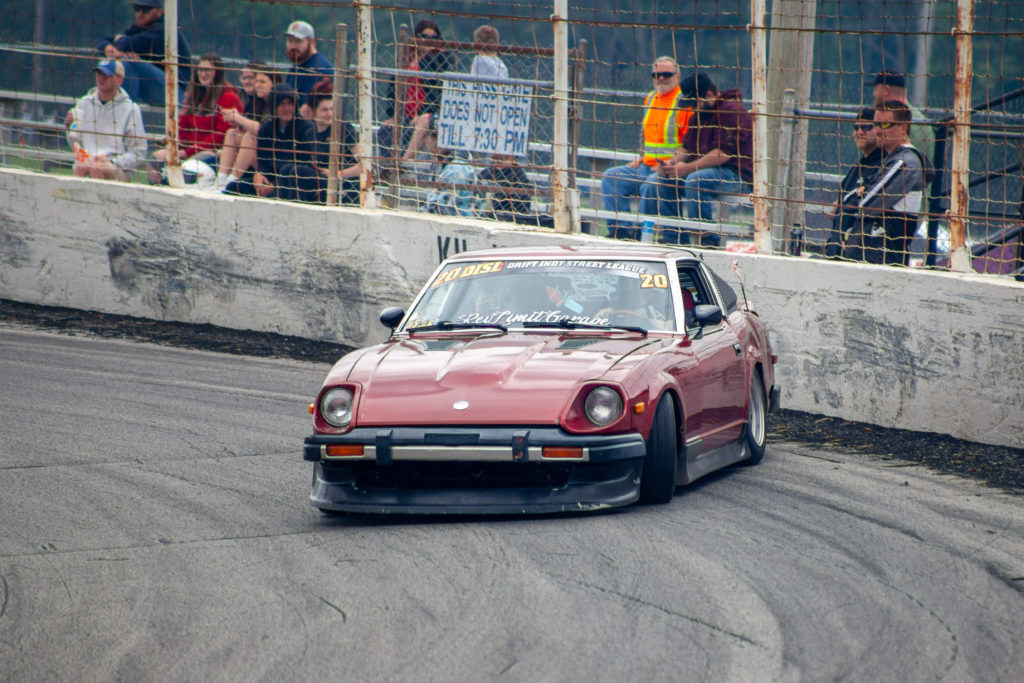
Let’s say you are not just a drift spectator, but you will be participating in the motorsport. Here are four terms that will be used to refer to more advanced drifting techniques.
Manji/Manji Drift | noun or verb
A Japanese term for snaking back and forth on straightaways in a controlled drift. It’s a useful technique for linking the track.
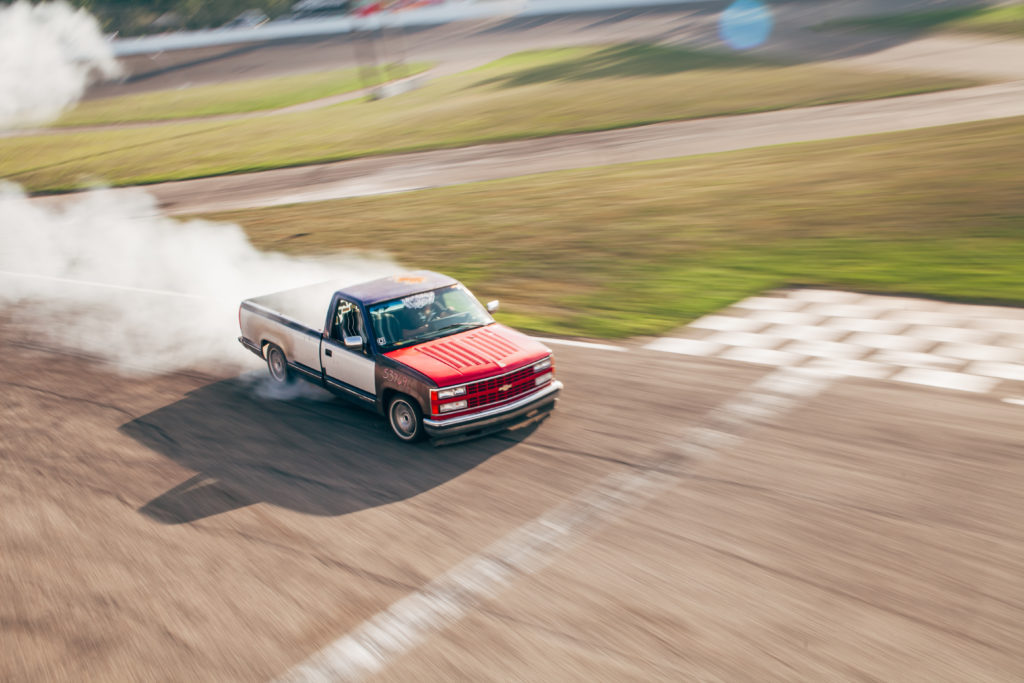
Feint | noun
This is also known as a Scandinavian flick. By quickly turning away from the intended direction of travel, then steering back toward the intended direction, a pendulum effect occurs that can overcome the lateral grip of the rear tires, thus initiating a drift.

Shift lock drift | Noun
A drift initiated by downshifting to a lower gear without rev matching. The rear end will break loose as the wheel speed catches up with the engine speed.
Kansei | noun
A Japanese term for a drift initiated by using lift off oversteer. By lifting off the throttle abruptly, the vertical load on the tires shifts from the rear to the front, thus making it possible to break adhesion of the rear tires and start a drift.

